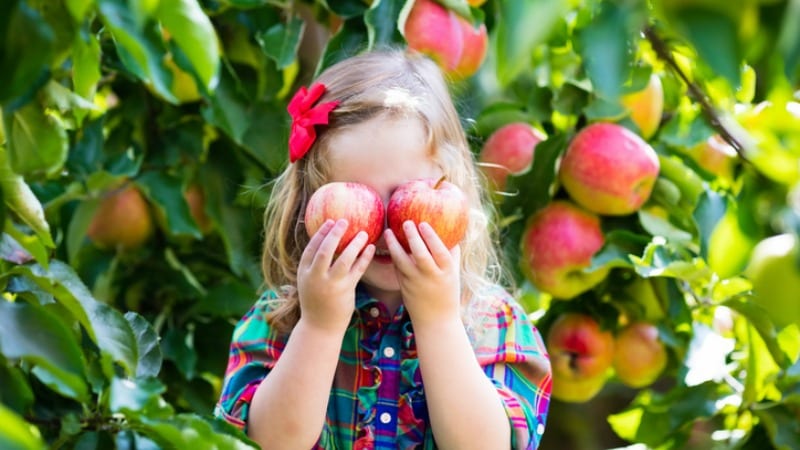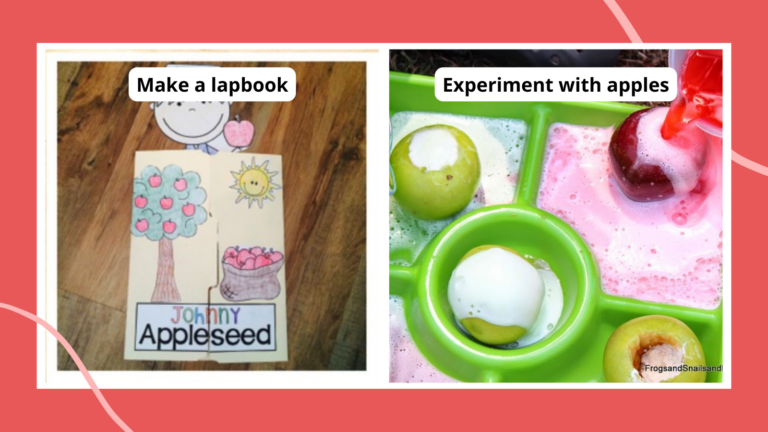The days are growing shorter, the air feels a little crisper and the trees have started their glorious fall fashion show. What better way to celebrate the season with your young students than to make some apple magic? Here are 10 fun and educational apple science activities for your students in preschool through second grade.
1. Create apple eruptions.
Amaze your students with this simple baking soda and vinegar experiment which turns a wholesome treat into a fizzing, frothing volcano. Check out this nicely laid out lesson from Frogs, Snails and Puppy Dog Tails.
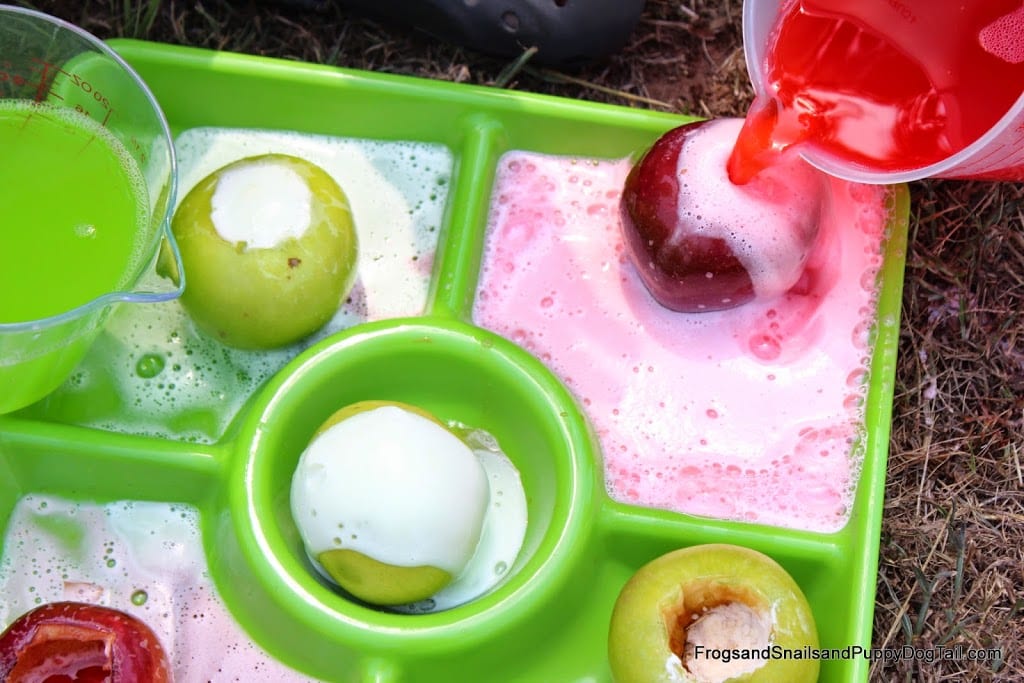
SOURCE Frogs, Snails and Puppy Dog Tails
Pro tip! Snag your baking soda, vinegar and apples all in one sweep! Use Walmart Online Grocery Pickup to place your order over lunch time & pick them up after school. We’ve got a special promo code (TEACHERS) that will get you $10 off your first order too.
2. Give your apples an anti-aging treatment.
Why do apples turn brown once the surface is cut and exposed to air? Students will love this trial and error experiment as they learn about the principle of oxidation.
This version from Gift of Curiosity gives a great explanation of the science behind why apples turn brown.
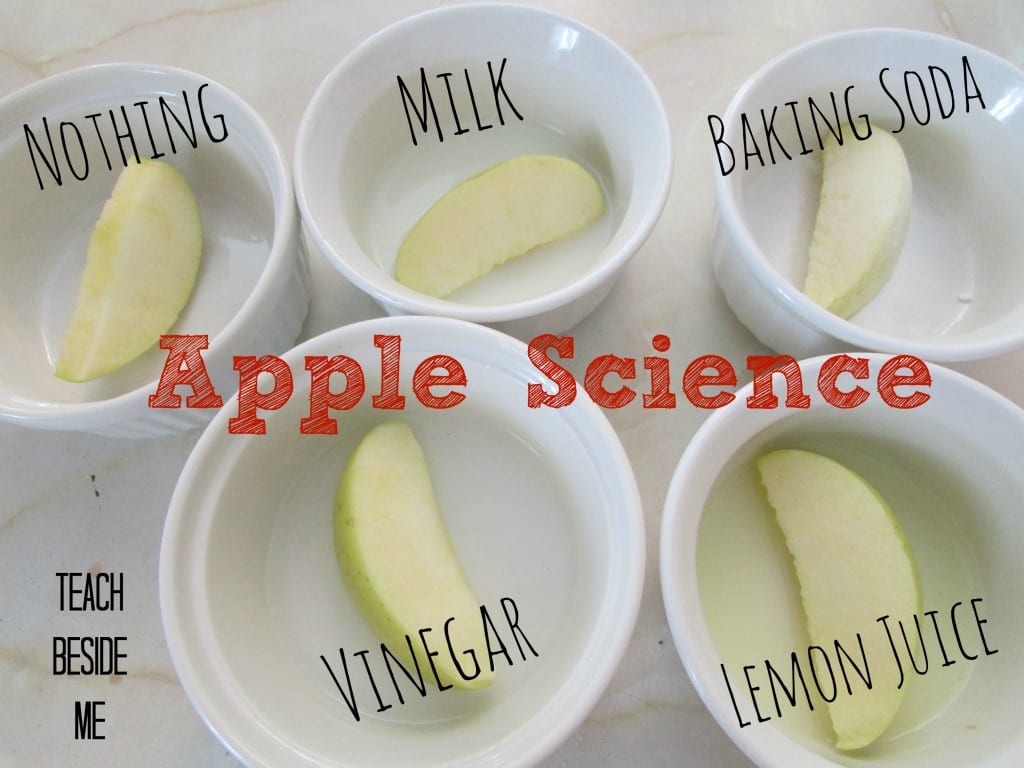
SOURCE Gift of Curiosity
This version from Left Brain Craft Brain does a thorough job of explaining the scientific method.
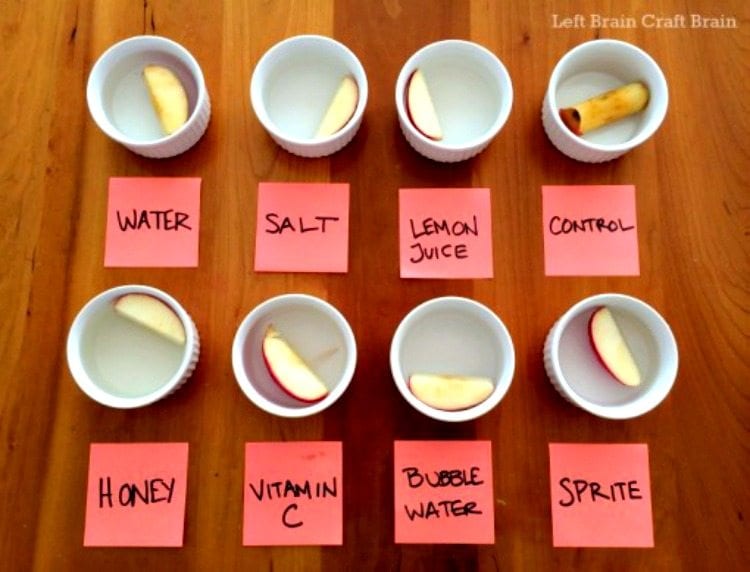 SOURCE Left Brain Craft Brain
SOURCE Left Brain Craft Brain
3. Take your apples to the races.
Touted as “simple physics for kids”, this activity from Little Bins for Little Hands, explores how gravity causes apples to fall from trees. Using cheap rain gutters, a bag of apples and different objects for different starting heights, variables like elevation, ramps and angles are explored.
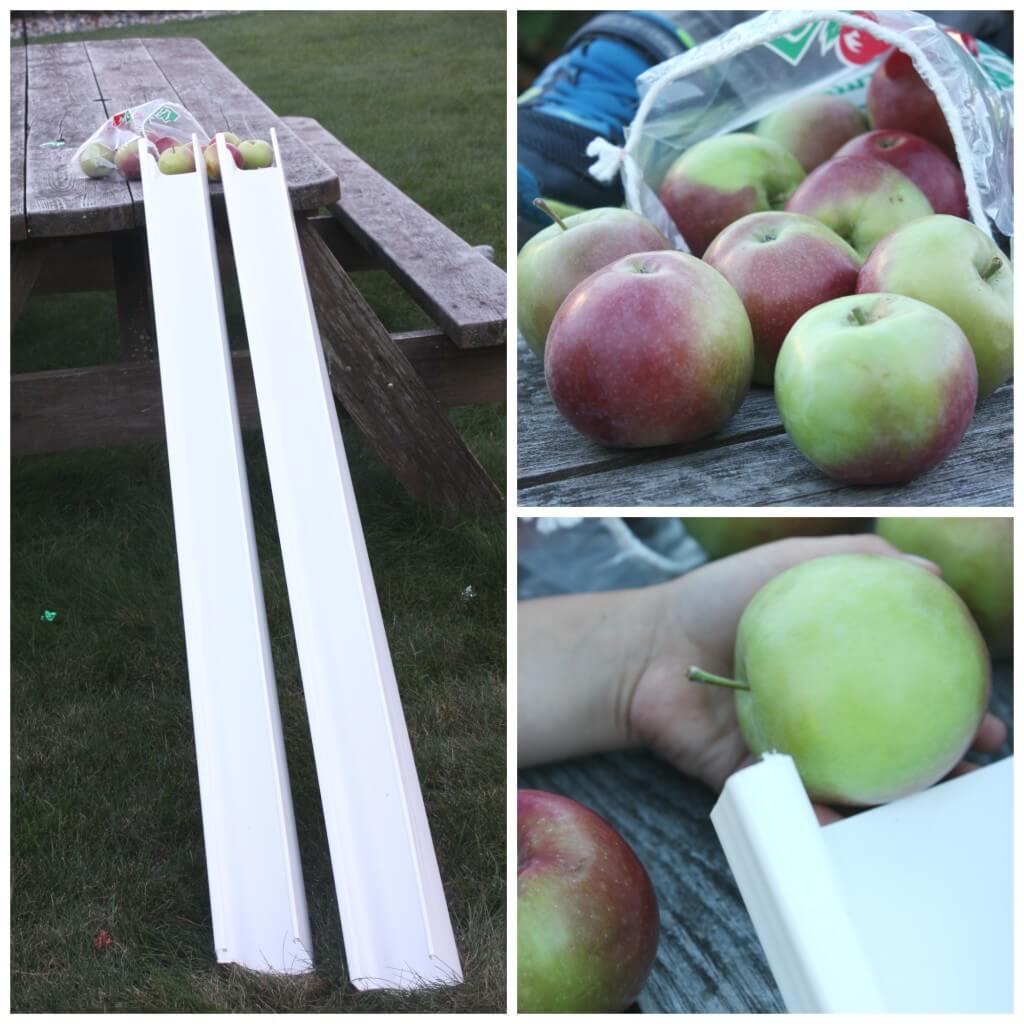
SOURCE Little Bins for Little Hands
4. See how your apples stack up.
Any activity starting with a Dr. Seuss book is a winner in the eyes of 5 year-olds! After reading Ten Apples Up On Top!, this activity from Learn Play Imagine lets kids have a go at apple stacking. Their efforts will lead to a lively conversation about concepts like gravity, weight distribution, relative size and balance.
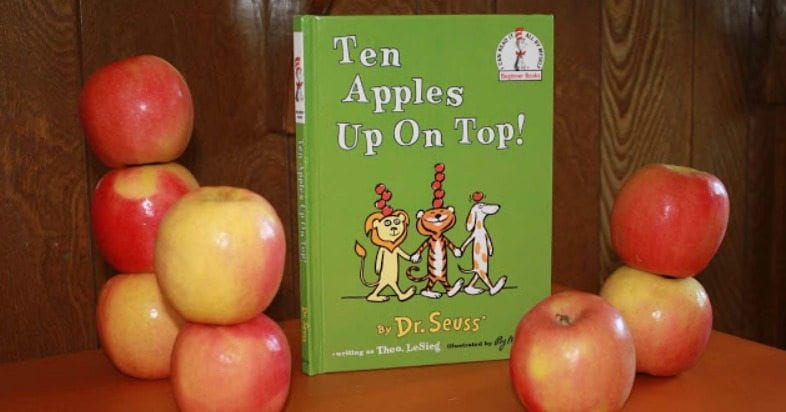
SOURCE Learn Play Imagine
5. Watch apple seeds sprout.
This easy experiment will delight your little learners as they watch a humble apple seed sprout and grow. This lesson from In All You Do lays out the steps of collecting and observing seeds for the beginning of the growth cycle in a scientific manner.
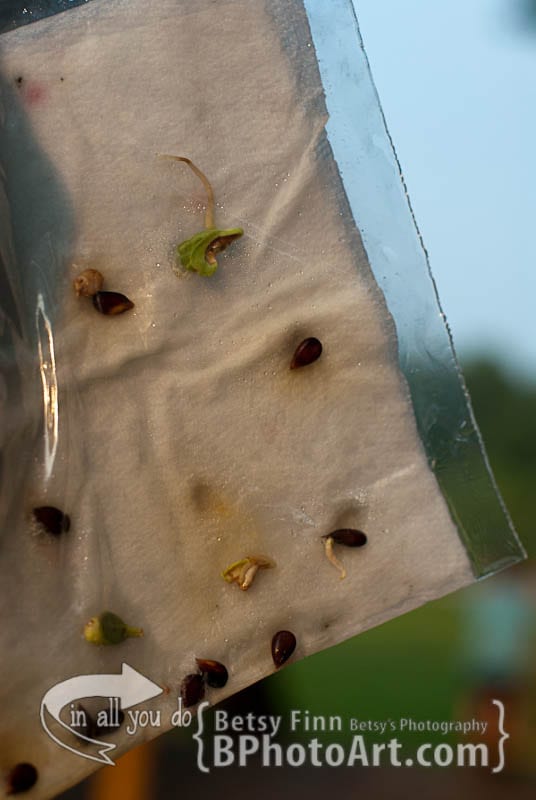
SOURCE In All You Do
6. Make apple seeds do a little synchronized swimming.
This activity from Teaching Mama seems more like a magic trick than a science experiment. What makes the apple seeds dance around? When we mix baking soda and vinegar in water, one of the bi-products that is created is carbon dioxide (CO2), which comes out as a gas, thus bubbles which make the little seeds put on a show.
SOURCE Teaching Mama
7. Be an apple architect.
This is a seasonal variation of the marshmallow and toothpick building activity for those who want to skip the sticky fingers. (And if your students happen to sneak a bite or two, they get a healthy snack!) This activity can be used as a team builder, or in a math lesson on 3D shapes or as a fun center at a fall holiday party.
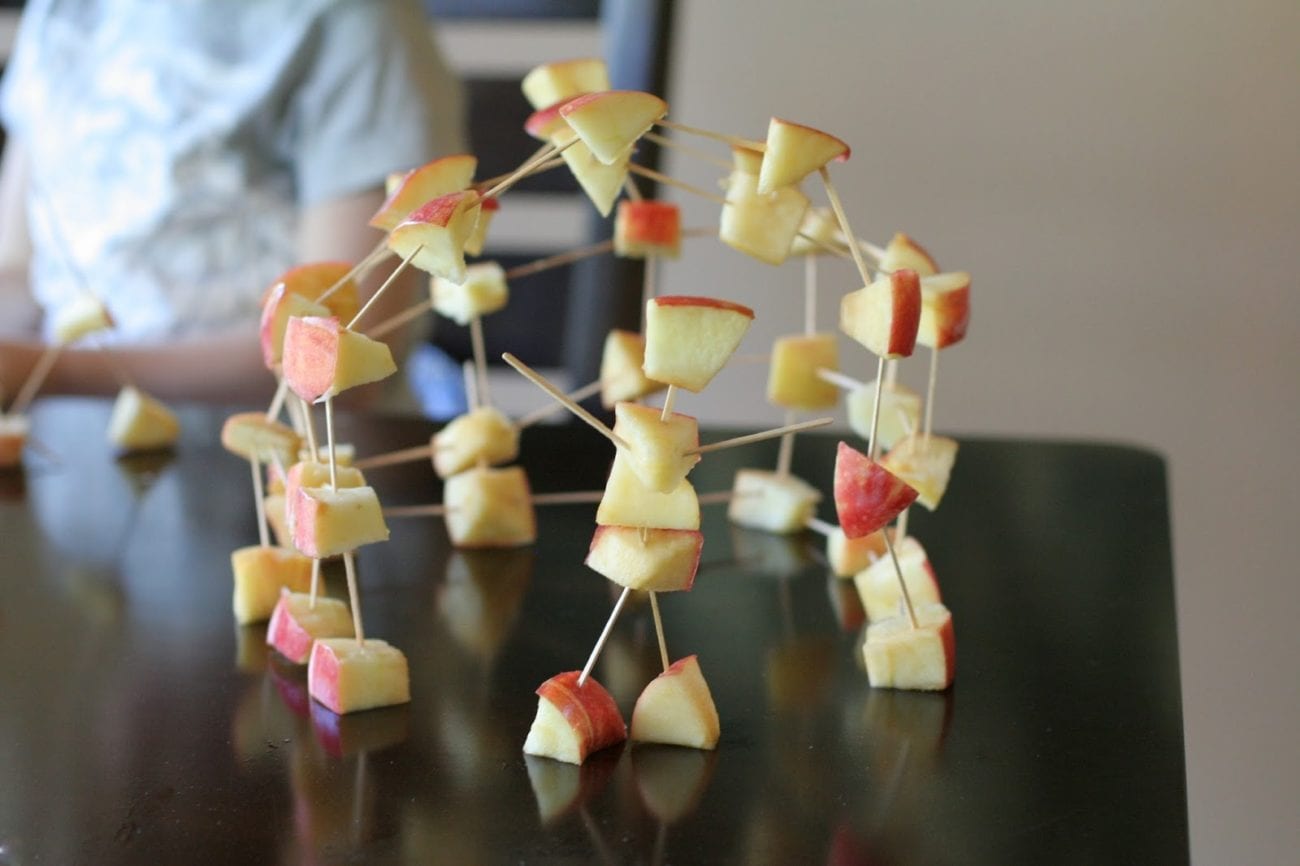 SOURCE Fun At Home With Kids
SOURCE Fun At Home With Kids
8. Mix up a little Applesauce Ooblek.
Oobleck is an easy-to-make substance that has some interesting physical properties. It can be liquid when held loosely in your hand, and can also act like a solid if it’s packed together. Give it a seasonal spin by using applesauce as one of the ingredients. Spoiler alert: Kids lose their minds when it comes to this stuff!
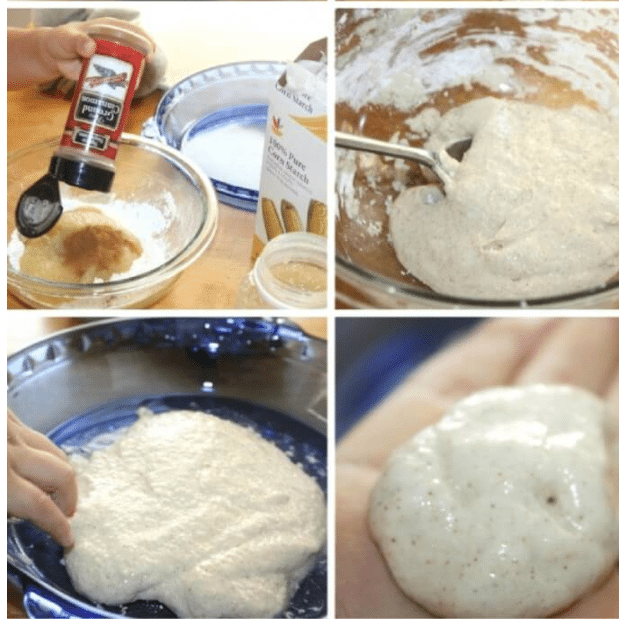
SOURCE Little Bins for Little Hands
9. Conduct an apple taste test.
You can tackle so many topics with this lesson from Feels Like Home. Your students can read stories about apples and apple growers, and then do research on how many varieties apples there are. You can study the life cycle of the apple and once you cut one open, the anatomy of an apple. As you walk your students through the scientific process, they conduct a taste test of their very own, using charts and graphs to collect data.
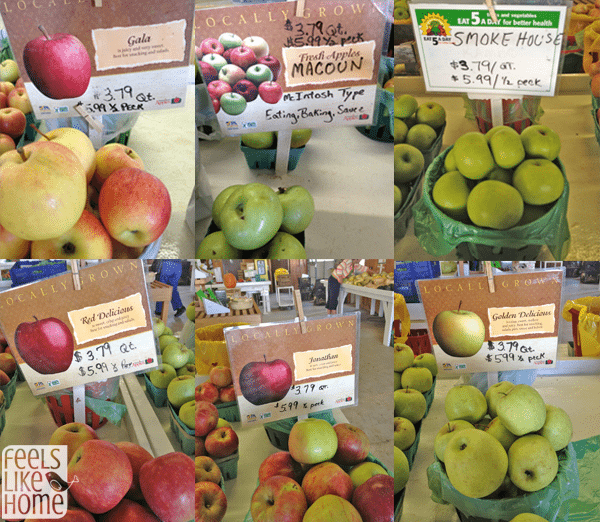
SOURCE Feels Like Home
10. Sink or float? See for yourself.
What happens when you put apples in a tub of water? Apple seeds? Explore the principle of buoyancy with your students as they make predictions and engage in scientific thinking with this lesson from Apples & ABCs.


SOURCE Apples & ABCs
Didn’t make it to the orchard this year? No sweat! Save a little time and money by ordering your apples using Walmart Online Grocery Pickup. Simply shop online at Walmart.com/grocery and select the Walmart store nearest you that offers the online grocery pickup feature (it’s available in over 100 stores nationwide). From your computer or mobile device, fill your virtual cart with all those apples and anything else you might need. Then select a time in your busy day to pull into the reserved pickup parking spot and while Walmart staff load your car.
Do you have favorite apple science activities you like to use in your classroom? Add them to the comments below!

